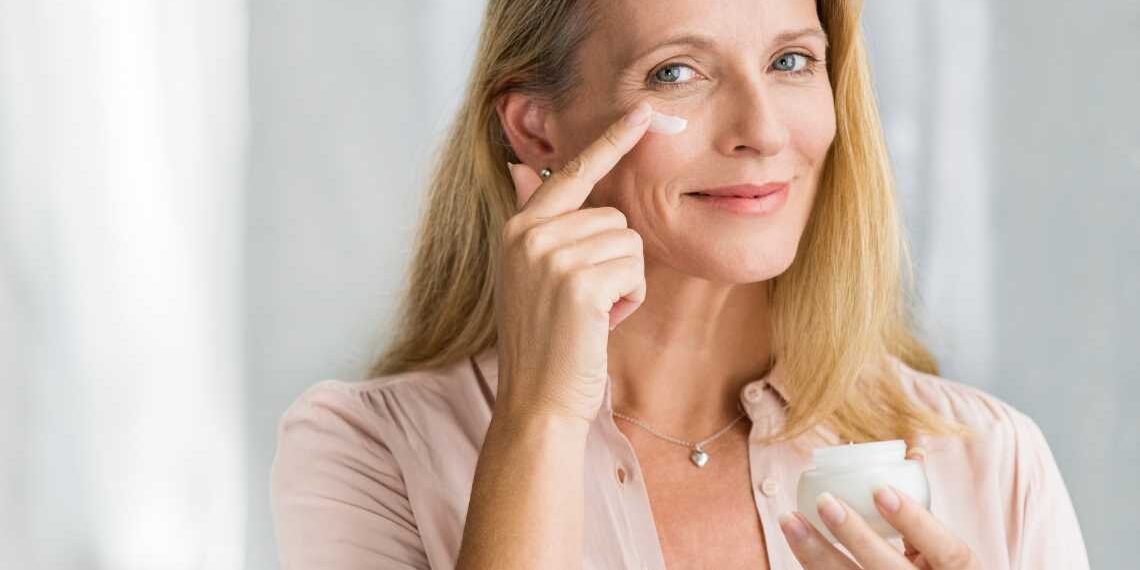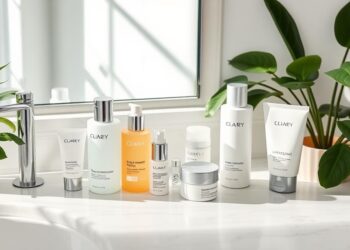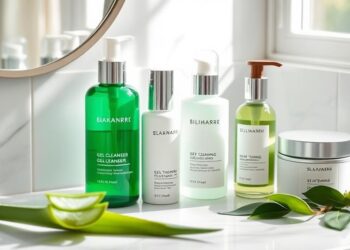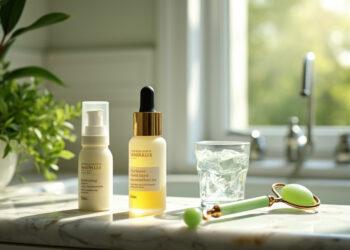Aging is a natural process that brings wisdom and experience but also challenges in maintaining youthful, vibrant skin. As we age, our skin undergoes various changes, such as reduced elasticity, fine lines, and wrinkles. However, with the right skin care tips and routines, you can minimize these effects and keep your skin looking its best.
Introduction
Aging skin requires special attention and care. As the skin matures, it undergoes several changes that can affect its texture, elasticity, and overall appearance. Understanding these changes and adopting a suitable skin care regimen can help maintain a youthful and radiant complexion. In this comprehensive guide, we will explore the best skin care tips for aging skin, focusing on hydration, sun protection, antioxidants, and more.
Understanding Aging Skin
Aging is an inevitable process that affects all skin types. As we age, the skin loses collagen and elastin, which are essential for maintaining its firmness and elasticity. Additionally, the skin’s ability to retain moisture decreases, leading to dryness and the appearance of fine lines and wrinkles.
What Happens to Skin as It Ages
- Reduced Collagen Production: Collagen provides structure and strength to the skin. With age, collagen production slows down, leading to sagging skin and wrinkles.
- Decreased Elastin: Elastin allows the skin to stretch and bounce back. A decrease in elastin results in less elastic, more saggy skin.
- Thinner Skin: Aging skin becomes thinner and more fragile, making it susceptible to bruising and damage.
- Slower Cell Turnover: The skin’s ability to regenerate new cells slows down, causing a dull and uneven complexion.
Common Issues in Aging Skin
- Wrinkles and Fine Lines: These are the most common signs of aging and occur due to repeated facial expressions and loss of skin elasticity.
- Dryness: Aging skin tends to be drier due to reduced oil production and moisture retention.
- Age Spots: Also known as liver spots, these are darkened areas of skin caused by prolonged sun exposure.
- Loss of Firmness: The skin loses its firmness and begins to sag, especially around the eyes, cheeks, and jawline.
Hydration: The Foundation of Youthful Skin
Hydration is crucial for maintaining healthy, youthful skin. Proper hydration helps to keep the skin plump, smooth, and radiant.
Importance of Hydration
- Moisture Retention: Hydrated skin retains moisture better, reducing the appearance of fine lines and wrinkles.
- Improved Skin Barrier: Well-hydrated skin has a stronger barrier function, protecting against environmental aggressors.
- Enhanced Elasticity: Hydration improves skin elasticity, making it look firmer and more supple.
Best Hydrating Products
- Hyaluronic Acid Serums: Hyaluronic acid is a powerful humectant that can hold up to 1000 times its weight in water, making it excellent for hydration.
- Glycerin-based Moisturizers: Glycerin is another effective humectant that attracts moisture to the skin.
- Hydrating Masks: Use hydrating masks weekly to give your skin an extra boost of moisture.
DIY Hydration Techniques
- Aloe Vera Gel: Aloe vera is a natural hydrator that soothes and moisturizes the skin.
- Honey Masks: Honey is a natural humectant that can be used in DIY masks to hydrate and nourish the skin.
- Cucumber Slices: Placing cucumber slices on the skin can help to hydrate and soothe tired, dry skin.
Sun Protection: A Must for Aging Skin
Protecting your skin from the sun is one of the most important steps in any anti-aging skin care routine. UV radiation can accelerate the aging process, leading to wrinkles, age spots, and a higher risk of skin cancer.
Why Sun Protection is Crucial
- Prevents Premature Aging: Sun protection helps to prevent the formation of wrinkles and fine lines caused by UV exposure.
- Reduces Risk of Skin Cancer: Regular use of sunscreen reduces the risk of developing skin cancer.
- Prevents Age Spots: Sunscreen helps to prevent hyperpigmentation and age spots caused by sun damage.
Best Sunscreens for Aging Skin
- Broad-Spectrum Sunscreens: Look for sunscreens that offer broad-spectrum protection against both UVA and UVB rays.
- Mineral Sunscreens: Mineral sunscreens containing zinc oxide or titanium dioxide are gentle and effective for aging skin.
- Moisturizing Sunscreens: Choose sunscreens with added moisturizing ingredients to keep the skin hydrated.
Daily Sun Protection Habits
- Apply Sunscreen Daily: Use a broad-spectrum sunscreen with at least SPF 30 every day, even on cloudy days.
- Wear Protective Clothing: Wear hats, sunglasses, and long sleeves to protect your skin from direct sun exposure.
- Seek Shade: Avoid direct sun exposure during peak hours (10 a.m. to 4 p.m.) when UV radiation is strongest.
The Power of Antioxidants
Antioxidants are vital for combating the signs of aging and protecting the skin from environmental damage. They neutralize free radicals, which can cause premature aging and damage to skin cells.
Role of Antioxidants in Skin Care
- Protects Against Free Radicals: Antioxidants help to neutralize free radicals, preventing oxidative stress and damage to the skin.
- Promotes Collagen Production: Some antioxidants, such as vitamin C, stimulate collagen production, improving skin elasticity.
- Reduces Inflammation: Antioxidants have anti-inflammatory properties that can help to soothe and calm the skin.
Best Antioxidant Products
- Vitamin C Serums: Vitamin C is a potent antioxidant that brightens the skin and promotes collagen production.
- Vitamin E Creams: Vitamin E is a nourishing antioxidant that protects and hydrates the skin.
- Green Tea Extracts: Green tea is rich in antioxidants and has anti-inflammatory properties.
Natural Sources of Antioxidants
- Berries: Blueberries, strawberries, and raspberries are rich in antioxidants and can be included in your diet for better skin health.
- Leafy Greens: Spinach, kale, and other leafy greens are excellent sources of antioxidants.
- Nuts and Seeds: Almonds, walnuts, and sunflower seeds provide a good amount of antioxidants.
Retinoids: A Key Ingredient
Retinoids are derivatives of vitamin A and are considered one of the most effective ingredients for anti-aging skin care. They promote cell turnover, improve skin texture, and reduce the appearance of fine lines and wrinkles.
Benefits of Retinoids
- Stimulates Collagen Production: Retinoids boost collagen production, improving skin firmness and elasticity.
- Increases Cell Turnover: They promote the shedding of dead skin cells, revealing fresher, smoother skin.
- Reduces Fine Lines and Wrinkles: Regular use of retinoids can significantly reduce the appearance of fine lines and wrinkles.
How to Use Retinoids
- Start Slowly: Begin with a lower concentration of retinoids to allow your skin to acclimate.
- Apply at Night: Retinoids can make your skin more sensitive to the sun, so it’s best to apply them at night.
- Moisturize: Follow up with a moisturizer to prevent dryness and irritation.
Best Retinoid Products
- Over-the-Counter Retinol Creams: Retinol is a milder form of retinoid available without a prescription.
- Prescription Retinoids: Tretinoin and other prescription retinoids are stronger and may be recommended by a dermatologist.
- Retinoid Serums: These serums are formulated to deliver retinoids effectively to the skin.
Exfoliation: Keeping Skin Renewed
Exfoliation is essential for removing dead skin cells and promoting a smoother, more radiant complexion. However, it’s important to exfoliate gently to avoid damaging aging skin.
Importance of Exfoliation
- Removes Dead Skin Cells: Exfoliation helps to remove the buildup of dead skin cells, revealing fresher skin underneath.
- Improves Skin Texture: Regular exfoliation can smooth out rough patches and improve overall skin texture.
- Enhances Product Absorption: By removing dead skin cells, exfoliation allows other skin care products to penetrate more effectively.
Best Exfoliation Methods
- Chemical Exfoliants: Alpha hydroxy acids (AHAs) and beta hydroxy acids (BHAs) dissolve dead skin cells without the need for scrubbing.
- Physical Exfoliants: Scrubs and brushes can be used, but they should be gentle to avoid irritating the skin.
- Enzyme Exfoliants: Enzymes from fruits like papaya and pineapple can gently exfoliate the skin.
How Often to Exfoliate Aging Skin
- Start with Once a Week: Begin with weekly exfoliation and gradually increase the frequency based on your skin’s tolerance.
- Listen to Your Skin: If your skin becomes red or irritated, reduce the frequency of exfoliation.
- Avoid Over-Exfoliating: Too much exfoliation can damage the skin barrier and lead to sensitivity.
Moisturizing: Locking in Hydration
Moisturizing is crucial for keeping aging skin hydrated and protected. A good moisturizer helps to lock in moisture and support the skin’s natural barrier function.
Best Moisturizers for Aging Skin
- Hyaluronic Acid Moisturizers: These moisturizers attract and retain moisture, keeping the skin plump and hydrated.
- Ceramide-Based Creams: Ceramides help to strengthen the skin barrier and retain moisture.
- Rich Creams and Oils: For very dry skin, rich creams and facial oils can provide intense hydration.
Tips for Effective Moisturizing
- Apply to Damp Skin: Moisturizers are most effective when applied to slightly damp skin, as they help to lock in moisture.
- Use a Humidifier: Using a humidifier in your home can help to maintain moisture levels in the air and prevent skin dryness.
- Layer Your Products: Apply a hydrating serum before your moisturizer to boost hydration.
Healthy Diet: Nourishing from Within
What you eat has a significant impact on the health and appearance of your skin. A balanced diet rich in vitamins, minerals, and antioxidants can support healthy aging skin.
Foods that Benefit Aging Skin
- Fatty Fish: Salmon and other fatty fish are rich in omega-3 fatty acids, which help to keep the skin moisturized and reduce inflammation.
- Avocados: Avocados are packed with healthy fats and vitamins that nourish the skin.
- Nuts and Seeds: These are great sources of vitamin E, an antioxidant that protects the skin from damage.
Importance of Hydration through Diet
- Drink Plenty of Water: Staying hydrated from within is essential for maintaining healthy skin.
- Eat Water-Rich Foods: Foods like cucumbers, watermelon, and celery have high water content and can contribute to your hydration needs.
- Limit Caffeine and Alcohol: Both caffeine and alcohol can dehydrate the skin, so it’s best to consume them in moderation.
Lifestyle Factors: Beyond Skin Care Products
Healthy lifestyle habits play a crucial role in maintaining youthful skin. Alongside a good skin care routine, these habits can make a significant difference in your skin’s health and appearance.
Impact of Sleep on Skin
- Cell Regeneration: During sleep, the skin goes into repair mode, regenerating cells and repairing damage.
- Reduced Puffiness: Adequate sleep helps to reduce puffiness and dark circles under the eyes.
- Improved Complexion: Good sleep promotes a healthy, glowing complexion.
Importance of Exercise
- Boosts Circulation: Exercise increases blood flow, delivering more oxygen and nutrients to the skin.
- Reduces Stress: Physical activity helps to reduce stress, which can have a positive impact on your skin.
- Promotes Detoxification: Sweating during exercise helps to expel toxins from the body, improving skin clarity.
Avoiding Smoking and Excessive Alcohol
- Smoking: Smoking accelerates skin aging by reducing blood flow and breaking down collagen and elastin.
- Excessive Alcohol: Alcohol dehydrates the skin and can lead to inflammation and broken capillaries.
Professional Treatments
Professional skin care treatments can complement your at-home routine and address specific concerns more effectively.
Best Professional Treatments for Aging Skin
- Chemical Peels: Chemical peels exfoliate the skin deeply, improving texture and reducing fine lines.
- Microneedling: This treatment stimulates collagen production and improves skin elasticity.
- Laser Therapy: Laser treatments can target pigmentation, wrinkles, and sagging skin.
How to Choose a Professional Treatment
- Consult a Dermatologist: A dermatologist can recommend the best treatment for your skin type and concerns.
- Consider Your Goals: Choose a treatment based on your specific skin care goals, whether it’s reducing wrinkles or improving texture.
- Evaluate Recovery Time: Some treatments require downtime for recovery, so consider your schedule when choosing a treatment.
Home Remedies for Aging Skin
In addition to professional treatments, there are several effective home remedies that can help to maintain youthful skin.
Effective Home Remedies
- Aloe Vera: Aloe vera gel soothes and hydrates the skin, reducing inflammation and promoting healing.
- Coconut Oil: Coconut oil is a natural moisturizer that can help to improve skin elasticity.
- Honey and Yogurt Masks: These masks can hydrate and nourish the skin, leaving it soft and supple.
Benefits of Natural Ingredients
- Gentle on the Skin: Natural ingredients are often gentler on the skin compared to synthetic products.
- Rich in Nutrients: Many natural ingredients are packed with vitamins and minerals that benefit the skin.
- Cost-Effective: Home remedies are often more affordable than commercial skin care products.
Facial Massage: Boosting Circulation
Facial massage is a simple yet effective technique to boost circulation and enhance skin health.
Techniques for Facial Massage
- Lymphatic Drainage: This technique involves gentle, sweeping motions to reduce puffiness and improve lymphatic flow.
- Pressure Points: Applying pressure to specific points can help to relieve tension and promote relaxation.
- Circular Motions: Using circular motions with your fingertips can stimulate blood flow and improve skin tone.
Benefits of Facial Massage
- Increased Circulation: Massage boosts blood flow, delivering more oxygen and nutrients to the skin.
- Improved Product Absorption: Massaging your skin helps to enhance the absorption of skin care products.
- Relaxation: Facial massage can be a relaxing and stress-relieving part of your skin care routine.
Stress Management: Impact on Skin
Stress can have a significant impact on your skin, contributing to issues such as acne, dryness, and premature aging.
How Stress Affects Aging Skin
- Increased Cortisol Levels: High levels of cortisol, the stress hormone, can lead to increased oil production and acne.
- Inflammation: Stress can trigger inflammation, exacerbating skin conditions like eczema and psoriasis.
- Reduced Repair Mechanisms: Chronic stress can impair the skin’s ability to repair itself, leading to premature aging.
Tips for Managing Stress
- Practice Mindfulness: Techniques such as meditation and deep breathing can help to reduce stress.
- Regular Exercise: Physical activity is a great way to relieve stress and improve overall well-being.
- Adequate Sleep: Ensure you get enough sleep to support your skin’s repair and regeneration processes.
Consistency is Key
A consistent skin care routine is essential for achieving and maintaining healthy, youthful skin.
Importance of a Consistent Routine
- Cumulative Benefits: Regular use of skin care products leads to better results over time.
- Prevents Flare-Ups: Consistency helps to prevent issues like dryness, acne, and irritation.
- Builds Healthy Habits: Establishing a routine makes it easier to stick to your skin care regimen.
How to Maintain a Routine
- Set a Schedule: Create a daily skin care schedule and stick to it.
- Keep Products Accessible: Store your skin care products where you can easily reach them.
- Track Your Progress: Keep a journal to track changes in your skin and adjust your routine as needed.
Choosing the Right Products
Selecting the right skin care products is crucial for addressing the specific needs of aging skin.
How to Read Product Labels
- Active Ingredients: Look for key ingredients like retinoids, antioxidants, and hyaluronic acid.
- Avoid Harmful Additives: Avoid products with alcohol, fragrances, and parabens, which can irritate the skin.
- Check Expiry Dates: Ensure the products are not expired, as expired products can be less effective or harmful.
Ingredients to Avoid
- Alcohol: Can be drying and irritating to aging skin.
- Fragrances: Can cause irritation and allergic reactions.
- Harsh Exfoliants: Physical exfoliants with large, rough particles can damage the skin.
Building a Skin Care Routine for Aging Skin
Creating a structured skin care routine tailored to the needs of aging skin can make a significant difference in your skin’s health and appearance.
Step-by-Step Routine
- Cleanse: Use a gentle cleanser to remove impurities and prepare the skin for further treatments.
- Exfoliate: Exfoliate weekly to remove dead skin cells and promote cell turnover.
- Treat: Apply serums and treatments with active ingredients like retinoids and antioxidants.
- Moisturize: Use a hydrating moisturizer to lock in moisture and protect the skin barrier.
- Protect: Apply sunscreen daily to protect against UV damage.
Morning vs. Evening Routines
- Morning Routine: Focus on protection and hydration. Cleanse, apply antioxidants, moisturize, and use sunscreen.
- Evening Routine: Emphasize repair and regeneration. Cleanse, exfoliate (if needed), apply retinoids or treatments, and moisturize.
FAQs
What are the best ingredients for aging skin? The best ingredients for aging skin include retinoids, hyaluronic acid, antioxidants (such as vitamin C and E), and peptides. These ingredients help to improve skin texture, reduce wrinkles, and boost collagen production.
How often should I exfoliate aging skin? It’s recommended to start with exfoliating once a week and gradually increase the frequency based on your skin’s tolerance. Over-exfoliation can cause irritation, so it’s important to listen to your skin and adjust accordingly.
Can diet impact the appearance of aging skin? Yes, diet plays a significant role in skin health. A balanced diet rich in antioxidants, vitamins, and healthy fats can support youthful, radiant skin. Foods like fatty fish, avocados, nuts, and leafy greens are particularly beneficial.
What is the best way to manage age spots? Age spots can be managed with regular use of sunscreen to prevent further darkening and treatments like chemical peels, laser therapy, and products containing ingredients like vitamin C and retinoids to lighten existing spots.
Is it necessary to use different products for morning and evening routines? Yes, it’s beneficial to use different products for morning and evening routines. In the morning, focus on protection with antioxidants and sunscreen. In the evening, prioritize repair with treatments like retinoids and hydrating moisturizers.
How can I prevent wrinkles from forming? Preventing wrinkles involves a combination of sun protection, hydration, a healthy diet, and the use of anti-aging ingredients like retinoids and antioxidants. Avoiding smoking and managing stress also play crucial roles in preventing wrinkles.
Conclusion
Maintaining youthful, radiant skin as you age requires a comprehensive approach that includes proper hydration, sun protection, the use of antioxidants, and a consistent skin care routine. By understanding the changes that occur in aging skin and adopting the best skin care practices, you can effectively minimize the signs of aging and keep your skin looking healthy and vibrant. Start implementing these tips today and enjoy the benefits of a well-cared-for complexion.













